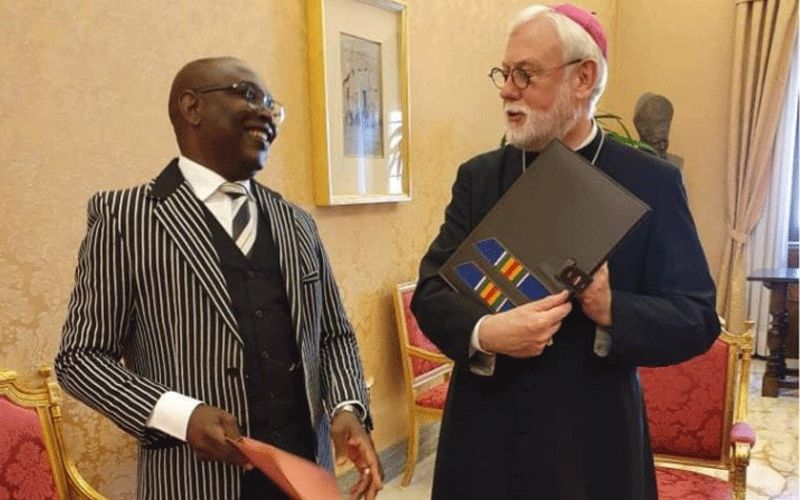Ouagadougou, 07 September, 2020 / 8:00 pm (ACI Africa).
A Bishop in Burkina Faso has, in an interview with ACI Africa, welcomed the Framework Agreement between the Holy See and the West African nation, saying the initiative “will enable Church and State to collaborate better.”
“Today, 7 September 2020, by means of official communication from the Embassy of Burkina Faso to the Holy See, the procedure for the exchange of the Instruments of Ratification of the Agreement between the Holy See and the State of Burkina Faso on the legal status of the Catholic Church in Burkina Faso, signed in the Vatican on 12 July 2019, was finalized,” the Holy See Press Office announced.
In an interview with ACI Africa Monday, September 7, the President of the Episcopal Conference of Burkina Faso and Niger (CEBN), Bishop Laurent Birfuoré Dabiré of Dori Diocese who was present at the signing ceremony highlighted the importance of such an agreement to both parties.
“The Agreement that comes into force today will enable the Church and State to collaborate better and be more effective in seeking the good of the people in general and of the Catholic faithful in particular,” Bishop Dabiré told ACI Africa.
He added, “From today the Agreement is official and can be invoked as a legal basis for any useful purpose by Dioceses, Congregations, Seminaries and any Structure of the Church with juridical personality in canon law.”








